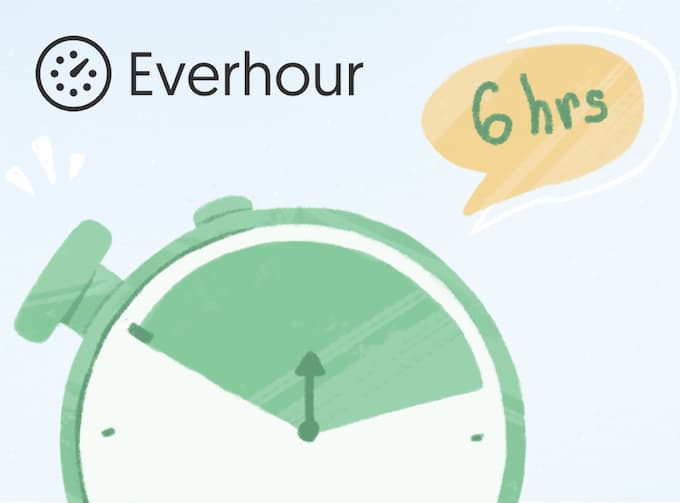Picture this scenario: you have an important deadline coming up, but your team doesn’t seem to function as well as they do in individual tasks. If you’re like most people, you’ve probably experienced this before, whether it’s a collaborative work assignment or a group activity. Somehow, people just seem to be less productive in a group than when they’re alone.
This lesser-known socio-psychological phenomenon is called social loafing. Not only can it directly hamper your team’s productivity, but it can also result in disastrous effects. To combat this, utilizing the best time tracking software can help keep everyone accountable and engaged.
In this article, we’ll discuss social loafing, why it occurs, and how you can prevent it from happening in your workplace.
Social Loafing: Understanding the Causes and Solutions

Social loafing is a term used to describe the tendency of individuals to underperform when they’re placed in groups. The first scientist to ever note this psychological phenomenon in action was the late Max Ringelmann around the 1900s.
Interestingly, Ringelmann wasn’t actually a psychologist. He was an agricultural engineer who specialized in making farming more efficient. In fact, the study that ultimately resulted in the concept of social loafing was meant to measure the way workers – both human and animal – move heavy loads. The study revealed that men pulled a rope harder when alone compared to when they were part of a group. This experiment showcased the core concept of social loafing.
Ringelmann concluded that this phenomenon was caused by miscoordination. However, years later, a group of researchers became interested in the psychological implications of the study and decided to replicate the experiment in a broader application. Their experiment showed the same thing: even in different setups, performance significantly dropped as the size of the group increased.
One of the most conclusive follow-ups was a study done by American social-psychologist Bibb Latane and his team. According to their study, if individuals believe that their efforts are not identifiable from a group, they won’t put in as much effort as they would if they were alone.
Today, social loafing is a firmly-established socio-psychological phenomenon that affects all kinds of groups, whether at home, school, or work.
Effects of Social Loafing on Workplace Productivity
Social loafing might be a widely observed phenomenon in psychology, but how exactly does it affect us in the workplace?
Here are a few key reasons why social loafing is harmful to teams.
❎ Delayed progress and reduced quality
As mentioned above, social loafing can hinder the efforts of a well-meaning team. Even if you set clear plans – if team members won’t do their best, they’re still going to have a hard time meeting the deadline.
As a result of struggling to catch up to a soon-to-expire or expired deadline, the quality of the work could be sacrificed.
❎ Ripple effects
Everything we do has a ripple effect. Just a single underperforming team can affect the entire organization. For example, if one team delays its output, the whole department could be at risk of getting their output slowed down as well.
This is made much worse in large, complex projects where everything else relies on another’s output.
❎ Member burnout
In social loafing, it’s only natural that some members will work harder than others. However, since these members are carrying most of the workload, it also makes them more likely to burn out. This lessens the team’s overall productivity even further the next time that it’s needed.
❎ Loss of motivation
Once a team has gotten used to not functioning as well as they should, there is less incentive to perform better because they know they can get away with underperforming. This starts a dangerous cycle of unproductivity, with social loafing at its root cause.
❎ Decreased mastery and upskilling
If individuals don’t participate in their assigned tasks, their skills won’t improve. They also won’t learn how to do their jobs better and more efficiently. This lack of motivation to learn can result in a stagnant workforce with declining quality of work.
❎ Group friction
As mentioned above, underperforming teams don’t exist in a vacuum – other teams might rely on the former’s work to finish theirs, especially when there’s a crucial project you need to wrap up. This means that failing to perform well may cause friction among affected groups.
Common Causes of Social Loafing in Teams

Social loafing can cause a wide range of problems for organizations, ranging from the mildly annoying to the downright dangerous. Thus, it’s important for us to take all the necessary steps to prevent, or eliminate, this harmful phenomenon from happening in our own organizations.
So, why does social loafing occur in the first place? If we want to be able to solve this issue, we need to understand the root causes first (via root cause analysis, for example). Only after we’ve understood them can we formulate proper, targeted responses.
In this section, we’re going deeper into the causes of social loafing.
😴 Insufficient motivation
The right incentives might not be present for your team to do their best.
And no, this isn’t just overtime pay or money. Even if the pay is high, team members are more motivated by feeling that there is value in their work. If they don’t feel that their work is valuable, they are less likely to be involved in their work, thus sliding into social loafing.
🏆 No individual recognition
Closely related to the first factor, a lack of recognition from leaders and supervisors may also be what’s driving the group loafing.
Recognition and management support are critical factors that affect employee retention. Simply put, when an employee’s output isn’t recognized by their higher-ups, they are less likely to stay within the company for long, let alone perform well.
🧾 Lack of accountability
If individuals are not directly held accountable for the outcome of a project, they are also less likely to do their best.
Keep in mind the conclusion of follow-up experiments by Bibb Latane et al.: when individuals believe that their efforts can’t be distinguished from the overall output, they will unconsciously not make as much effort, or none at all.
This resulting phenomenon is similar to the ‘bystander effect,’ which says that the more people there are present, the less likely individuals are to help out.
👯♀️ Team size
Ringelmann first noticed that the larger the group, the lesser the individual effort of the team tends to be. This same conclusion has also been observed in other experiments.
We can conclude that group size is one of the most predictable causes of social loafing. This is because the larger the group becomes, the less important individuals in the group feel. In fact, they may even feel like their contribution isn’t necessary anymore since other people will contribute anyway.
🐐 Herd mentality
Herd mentality is another psychological phenomenon that refers to herding animals. Specifically, those that merely follow what most other animals in the herd are doing.
When individuals enter a work environment where everyone is a social loafer, they will end up following everyone else and underperforming, as well.
On the other hand, placing an individual in a group of well-motivated people is also more likely to drive up their performance since they will feel the need to fit in with everyone else.
Proven Strategies to Prevent Social Loafing and Improve Team Collaboration

Now that we understand what social loafing is, we can now look into how to prevent or minimize instances of social loafing in any team.
1️⃣ Delegate your tasks intentionally and specifically
When deciding who needs to do what, don’t just pick the one closest to you or the first one to say they’ll take it.
Before anything else, consider their strengths, past performance, and how they might work together with a possible teammate. If they need to be in a team, it’s best to have as few members as possible.
Also, when managing multiple projects, you have to be very specific to avoid confusion. Tell each individual what they have to do, what resources they’ll be using, and when you need their final output. Make their tasks as clear to them as possible, and always entertain reasonable questions.
Intentional and specific task delegation can make your team members feel relevant to the task. If you outline their task to them properly, they will know the relevance of their work and how their output will impact the team.
2️⃣ Use the right management tools
Although starting your project on a good note is already a significant step towards your goal, you need to find ways to sustain this kind of performance all the way to the finish line. You can do this with the right project management tool, such as Everhour.
Everhour provides you with all the features that you need to manage a complex project: time tracking, resource management, and tons of hassle-free integrations for other functionalities that you want to incorporate into your workflow.
Without capable software, it becomes more difficult to coordinate with your team and easier to mess up your records.
These inefficiencies can reduce motivation and even result in social loafing. To keep your team as functional as possible, make sure you run a tight ship with the right software.
3️⃣ Communicate well and often
Working on a project with a team can be a grueling task for everyone involved. Without proper communication between members, unexpected issues can arise, which will affect the entire project.
If you don’t want misunderstandings and further inefficiencies to occur, make sure to institute efficient communication lines and proper dissemination channels.
4️⃣ Reduce menial tasks
Menial tasks are repetitive yet necessary tasks that take up a lot of your employees’ time.
If you add pressing deadlines and complex work on top of these workloads, it can easily lead to employee burnout and, eventually, social loafing.
Cutting back on the menial, time-consuming tasks will free up everyone’s time and energy, allowing them to focus on what really matters.
Each situation will be different, but these are some ways that you can reduce your menial tasks:
- Automating administrative and HR functions
- Using time tracking tools like Everhour
- Integrating powerful software for your workflow
- Hiring administrative assistants or interns that will take care of most menial tasks
5️⃣ Recognize everyone’s effort
Without specific recognition and support from leaders, individuals are less likely to feel appreciated and are more likely to slide into the background.
This is why recognition and support are some of the main driving forces of employee motivation. You can drastically reduce instances of social loafing. Give credit where credit is due and making sure that you regularly thank everyone for their efforts.
Understanding Social Loafing
The psychology of social loafing might seem alarming. However, if you know what drives it and adhere to healthy group norms, you can develop the right countermeasures.
There are a lot more factors than we’ve discussed, of course. In general, a social loafer is born when there is little attention given to each individual of the team. This is particularly dangerous for team leaders and managers, who tend to focus more on results than their relationship with their colleagues.
By minimizing social loafing, you’re not just creating a better relationship with employees – you’re also ensuring a more efficient, more productive workplace.
Learn how to track your employees’ productivity and improve overall productivity!

All-in-one time management system for your team
Estimate tasks, set budgets, customize reports – direct in your project management tool.
✔️ Asana time tracking
✔️ Trello time tracking
✔️ Basecamp time tracking
✔️ Jira time tracking
✔️ GitHub time tracking
✔️ ClickUp time tracking
✔️ Monday time tracking

